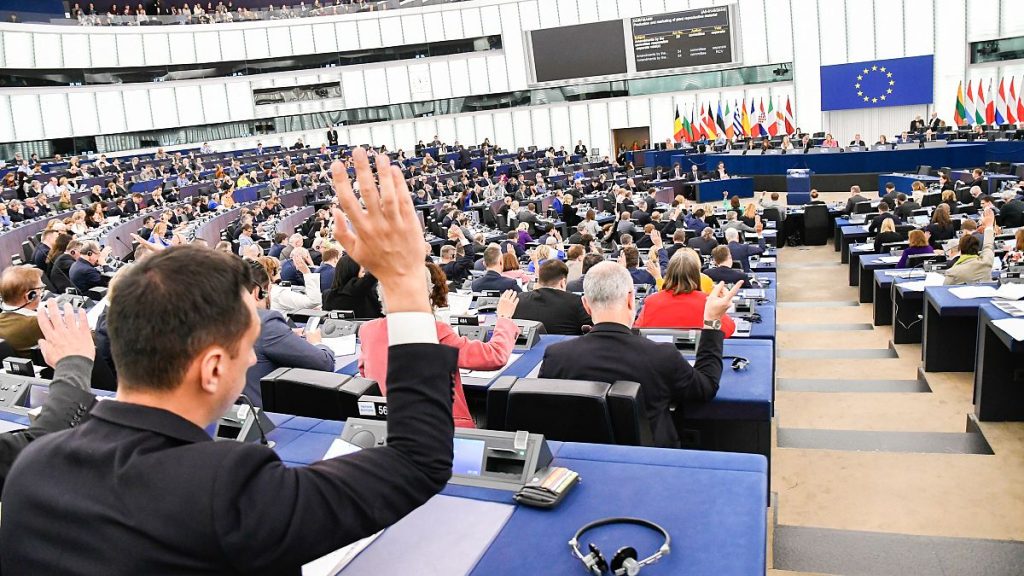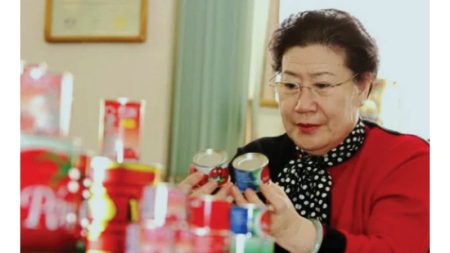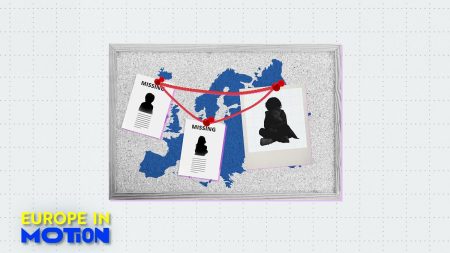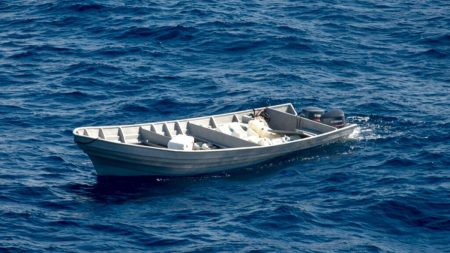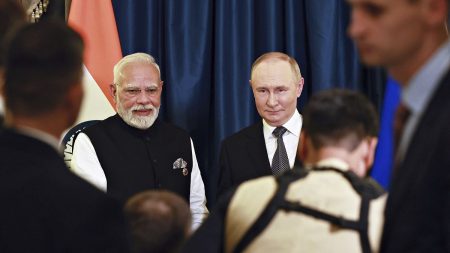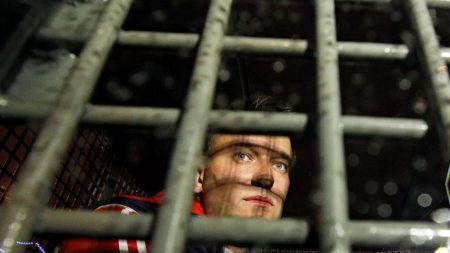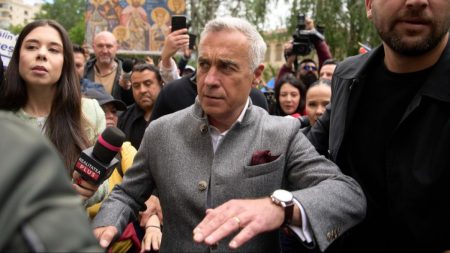Summarize this content to 2000 words in 6 paragraphs in Arabic
As the European People’s Party kicks off the group constitution season today, Euronews considers some ground rules European party leaders should follow for canny group forming.
ADVERTISEMENTWill Meloni and Le Pen’s groups merge? How about Orbán’s Fidesz? Will Italy’s Five Star Movement finally find a home after spending a term in non-attached limbo? These are open questions as the horse-trading for parliamentary groups heats up and as constitutive meetings begin this week in the wake of EU elections.Political groups are central to the European Parliament’s functioning and operations and help facilitate the assembly’s decision-making process.They are crucial for building majorities – from approving the European Commission president and the Commissioners to greenlighting important legislative files – as well as organising and coordinating the activities of the lawmakers.Seven to ten political groups have been established since the first direct elections were held in 1979. The procedural regulations governing how they operate are intricate but past practices establish some key tips for group formation.Here are five golden rules:1) The 25/7 RuleThat’s the magic formula: to form a group, you need at least 25 MEPs elected from at least seven member states sharing the same political affinity – of course, an MEP cannot belong to more than one political group.Failing to meet this rule relegates you to non-attached limbo and many marriages of convenience have been attempted in the past to escape this fate – such as the politically neutral Five Star Movement’s alliance with Nigel Farage’s right-wing UKIP forming the now defunct EFDD group.To prevent groups formed just for the sake of money and power, the interpretation of the ‘political affinity’ criteria has been reinforced. Once a group is approved, however, there is no system for ensuring internal discipline and verifying political affinity in practice, though high levels of voting cohesion have been achieved in the past by almost every group.Despite the political affinity criteria, existing groups like Renew Europe and historic groups like Greens/EFA have included different European parties, meaning that a Parliament group should not necessarily mirror a European political party.In practice: No party is an island (no matter how many MEPs they can count on) and interactions with other, sometimes quite smaller, political forces are essential to find a home.2) Groups – better in than outNon-attached MEPs have limited power and very little access to key positions within the Parliament’s political and organisational structures. In 2019 when Fabio Massimo Castaldo was re-elected as Parliament’s vice-president for non-attached members, it was a surprise – but an exception to the rule.Likewise, non-attached MEPs have no chance of appointment as committee chairs, or rapporteurs on significant dossiers.Most importantly, the non-attached also miss out on higher funding for collective staff and parliamentary activities, as they are effectively cut off from a line of EU budget funding. For example, when the Five Star Movement failed to find a group home in the last mandate, they had to cut several group assistants who were working in strict coordination with their MEPs for lack of funding.In practice: Expect Fidesz, Bündnis Sahra Wagenknecht, or Five Star Movement to hunt keenly for a home where they can enjoy safe harbour.3) The bigger the group, the better…It’s a fact: larger groups benefit from more speaking time, resources, power-sharing opportunities, and legislative files. They also receive more money from the EU budget proportionally allocated on the basis of size and can gain more media attention as representatives of a larger entity.A question likely to be tested in this mandate is whether group size can protect against the practice of being cold-shouldered by other groups on grounds of principle, leaving MEPs in the group unable to find support for appointment to influential positions. This practice, known as a cordon sanitaire, has been witnessed – usually applied to far-right groups such as Identity and Democracy (ID) – during past three mandates.ADVERTISEMENTBut excluding large groups on the right wing from active participation could prove controversial – especially if those groups expand – since the cordon sanitaire can appear undemocratic and might paradoxically foster more support for the extremes.In practice: The larger a group is the more influence it wields over the Parliament’s work, that’s why bigger groups such as the European People’s Party (EPP) and the Socialists and Democrats (S&D) will try to accumulate even more MEPs. It also means that radical right groups have a vested interest in getting bigger – time for example to rethink the expulsion of Alternative fur Deutschland, or a good moment to snuggle up with Orban’s Fidesz?4-…but control of a group is best of allSometimes, controlling a group yields more opportunities than size. See how Italy’s and Spain’s numerous delegations exercised huge sway inside the S&D – as does Germany’s CDU within the EPP, or how in the past Greece’s Syriza dominated the Left.It can be better to have a smaller, controlled group than a large, unwieldy one. A case in point is Italian Prime Minister Giorgia Meloni’s Fratelli d’Italia: the undisputed ruler of the European Conservatives and Reformists group (ECR) vying with the liberals to be the third largest in the Parliament. While the remote-seeming possibility of merger with the far-right ID would create a hard-right juggernaut in the hemicycle, it would also mean that Meloni would have to power share with Le Pen’s Rassemblement National, which has the most MEPs in the Parliament. ADVERTISEMENTIn practice: Party leaders “owning” a group might have more to lose from group expansion.5) Being long established fosters institutional strengthUnlike the more established Greens and liberals, on election day, the far-right ID group had no organised results party in the Parliament. A trivial point perhaps, but established groups are more cohesive, better organised and able to draw on cyclical experience and improve on past initiatives.Traditional groups have better stability and organisation, which translates into more institutional power. They benefit from experienced Parliament professionals who know the rules of the game, also making these groups more reliable as coalition partners.In Practice: Traditional groups are more reliable than newcomers, and more attractive to those setting up coalition agreements to vote for a candidate to be the next Commission president.
rewrite this title in Arabic How does the European Parliament group shuffle work? Five golden rules
مقالات ذات صلة
مال واعمال
مواضيع رائجة
النشرة البريدية
اشترك للحصول على اخر الأخبار لحظة بلحظة الى بريدك الإلكتروني.
© 2025 جلوب تايم لاين. جميع الحقوق محفوظة.





